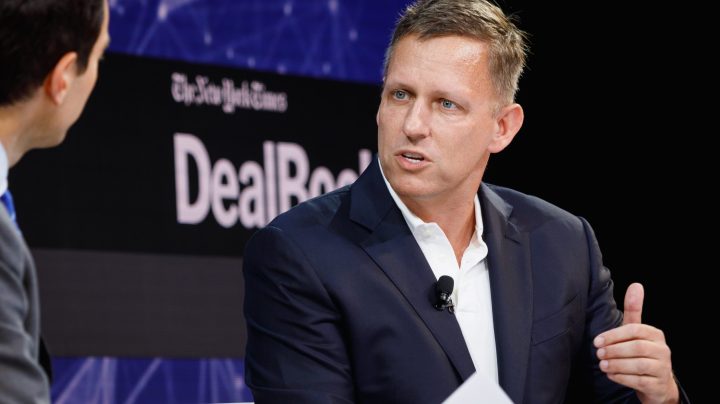
Silicon Valley Bank’s collapse reveals deeper flaws in the venture capital industry
Silicon Valley Bank’s collapse reveals deeper flaws in the venture capital industry

We know that Silicon Valley Bank collapsed, for the most part, because it failed to manage its interest-rate risk. The bank’s subsequent selloff of assets and resulting bank run that caused put in motion the second-largest bank failure in U.S. history.
Knowing this, though, it might also be the right time to look at some of SVB’s biggest clients: the venture capital firms whose investments fund Silicon Valley’s most innovative startups.
Upon the first signs of trouble at SVB, VC firms were some of the first to advise their clients to get their money out of the bank, which some investors blame for feeding the fire.
Over the weekend, prominent VCs were also vocal in pressing the government transfer SVB to a larger bank and secure all of its deposits — or face contagion and further crisis.
To make sense of where VCs stand in this mess, Marketplace’s Kai Ryssdal talked to Peter Lee, Martin Luther King Professor of Law at UC Davis School of Law, who published a study last year on the VC ecosystem.
“They enjoy this almost mythic reputation for innovation, for individuality, for creating long term value, but I think that the collapse of SVB and other incidents really poke some holes in that image,” Lee said. “And I think that we might think more carefully about how we might want to regulate VCs in the future.”
The following is an edited transcript of their conversation about what the fallout of SVB’s collapse can teach us about the VC industry.
Kai Ryssdal: Could you, as briefly as is reasonable, describe the venture capitalist ecosystem for me?
Peter Lee: Sure. So first, social ties are really critical to Silicon Valley. And social ties are particularly important to connecting entrepreneurs and VCs. Basically, who you know matters more than what you know. Secondly, VCs exhibit a significant degree of herd mentality. They tend to cluster investments in the same trendy technologies, and there’s a lot of groupthink in their investments. And then finally, the VC business model really favors — and this is not entirely surprising — big upsides in a medium-term timeframe. One of the upshots of this is that this effectively excludes large swaths of potentially socially-valuable innovations from really being attractive from the perspective of VC investors.
Ryssdal: Okay, so with that as academic backdrop, were you at all surprised when on Friday morning, you heard SVB had been seized by regulators?
Lee: I was not actually that surprised. I think this actually reflects one phenomenon I just described, which is this herd mentality. Just as VCs tend to cluster their investments in particular areas of technology, it did not surprise me that you had a significant movement on the part of VCs to advise their portfolio companies to get out of SVB.
Ryssdal: Right. Okay, here’s the thing that amazes me about this. And this isn’t my original thought, I have a very good friend who’s in venture capital, who repeated this to me on Friday afternoon: these guys basically cannibalized their own bank by urging their portfolio companies to get out of SVB. They made the bank that they were instrumental in helping create and live on crash.
Lee: That’s true. That’s true. You know, I think that in a macroscopic sense, it’s obviously had very negative impacts. But in terms of what you’re doing in the moment, as a quote, unquote, “rational actor,” it actually makes sense to withdraw your money as quickly and as soon as possible, before the bank fails and taking out your money no longer becomes viable.
Ryssdal: What do you make, then, of a very large handful of very high profile venture capitalists saying on Twitter and publicly elsewhere: “You must save us or Armageddon will be nigh.”
Lee: Right. So this is somewhat ironic, given that there is this ethos of individualism and libertarianism within Silicon Valley. They’re kind of supposed to represent the freewheeling market economy. But in fact, they’re basically saying we need to have government intervention to step in and forestall a major crisis.
Ryssdal: We should say here, the government smiles on the venture capital community.
Lee: Yes. In many ways, the venture capital community has benefited substantially from government intervention. And I would say that the government has actually looked to the VC markets as an important tool in industrial policy.
Ryssdal: With the understanding that you devoted some portion of your professional life to studying this group of people, this whole episode doesn’t really reflect well on them, does it?
Lee: It doesn’t actually. And I think we need to think a bit more carefully about the role of VCs in society, the role of VCs in the economy. One of the reasons I was actually interested in studying the VC community is that they enjoy this almost mythic reputation for innovation, for individuality, for creating long term value. But I think that the collapse of SVB and other incidents really poke some holes in that image. And I think that we might think more carefully about how we might want to regulate VCs in the future.
There’s a lot happening in the world. Through it all, Marketplace is here for you.
You rely on Marketplace to break down the world’s events and tell you how it affects you in a fact-based, approachable way. We rely on your financial support to keep making that possible.
Your donation today powers the independent journalism that you rely on. For just $5/month, you can help sustain Marketplace so we can keep reporting on the things that matter to you.


















